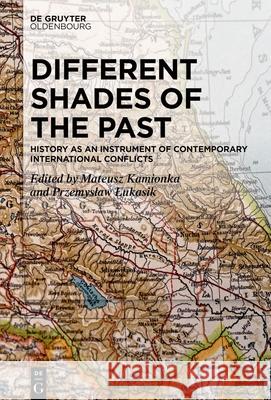Different Shades of the Past: History as an Instrument of Contemporary International Conflicts » książka
Different Shades of the Past: History as an Instrument of Contemporary International Conflicts
ISBN-13: 9783111000251 / Angielski / Twarda / 2023 / 217 str.
In his book 21 Lessons for the 21st Century the historian Yuval Noah Harrari wrote that man had the possibility to conquer the world precisely because he could create fictional stories and believe in them. People created more and more complex stories about themselves that served and continue to serve, according to the professor of the University of Jerusalem, building unity, social harmony and gaining power. A narrative about past, in which memory fragmentation and victimisation play a large role, may be a temptation to instrumentalise the past. This is especially true in relation to the events of the twentieth century, when a series of bloody war conflicts occurred. As shown in the following post-conference volume, today the wars of the past (World War I and World War II, Indian-Pakistani war) and current conflicts (Russo-Ukrainian war, war in Sudan or Nagorno-Karabakh) are also a catalyst for the process of instrumentalisation. This process can be analysed both at the level of the evolution of the language of conflict, including the erosion of the values of democratic dialogue, and the use of specific means of commemorating the past (monuments, museums, the Internet).











